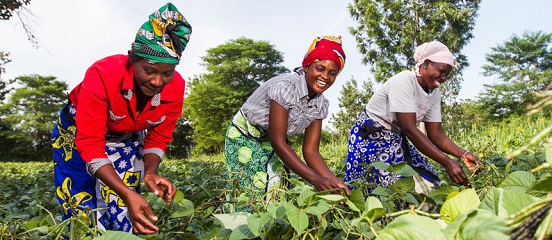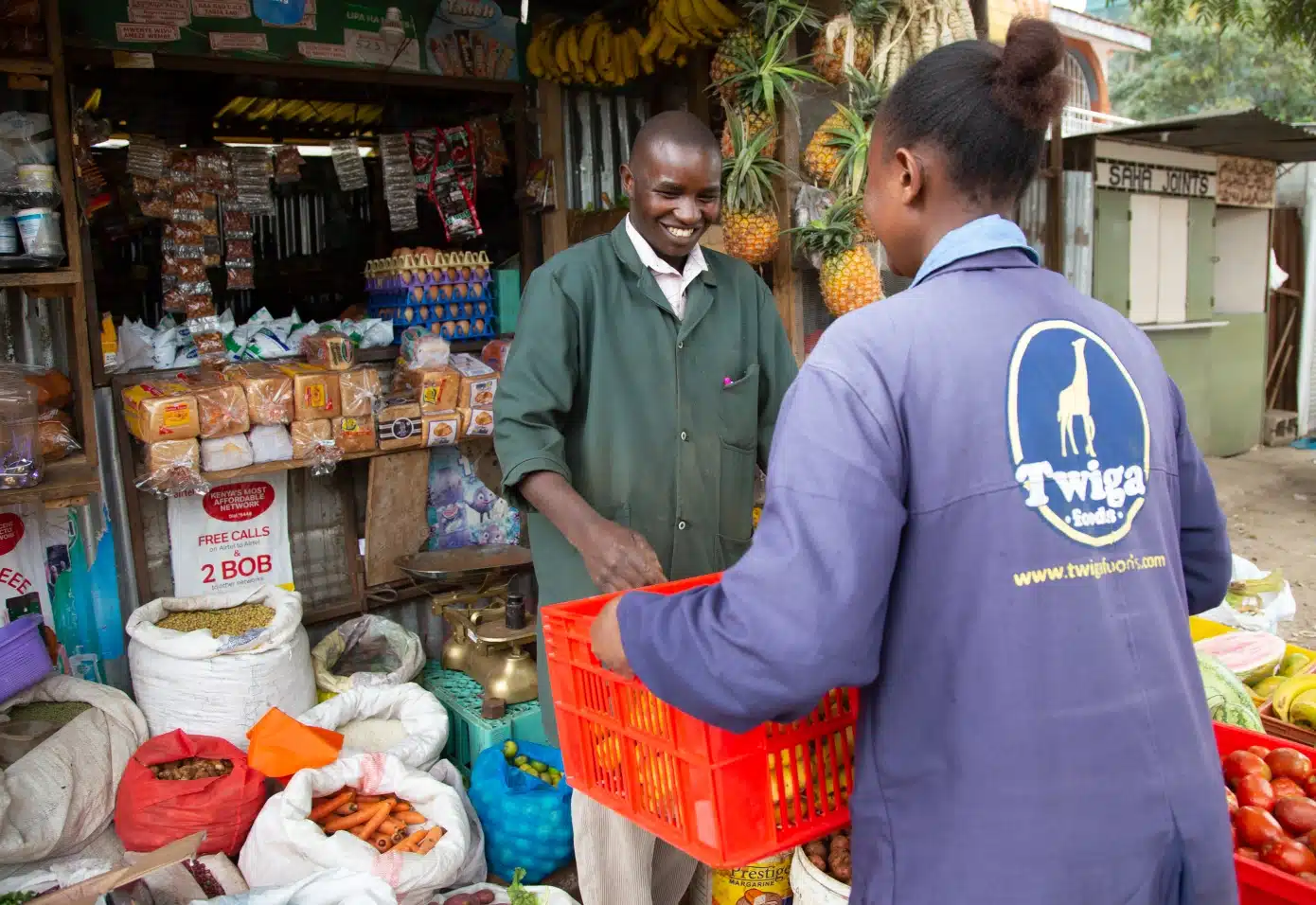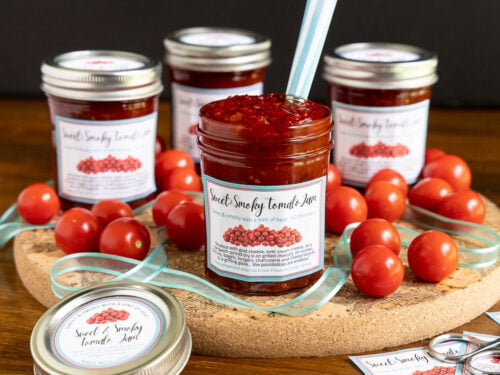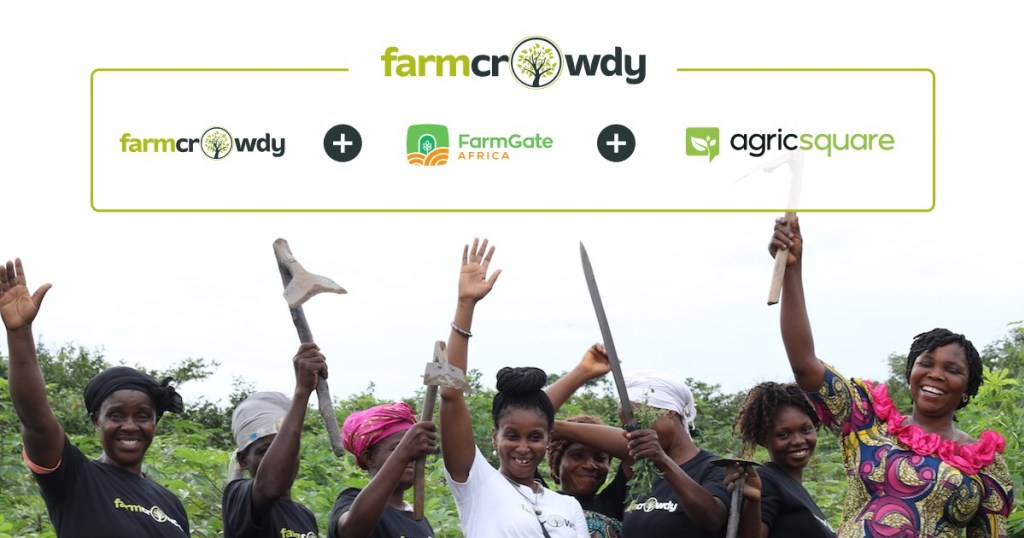By James, Africa Contemporary Farmers Consultant
Greetings, fellow farmers! My name is James, and I’m here with Africa Contemporary Farmers (ACF) to share how simple tools and technology can make farming easier, increase the amount of crops you sell, and help you earn more money. Whether you have a small plot or a larger farm, you don’t need to be a commercial farm owner to benefit. Even if you’re farming in your backyard, there are ways to use technology to grow your business. Let’s dive in!
How Small to Medium Scale and Backyard Farmers Can Use Technology to Boost Crop Marketing and Sales.
1. Mobile Phones: More Than Just a Communication Tool
We all use mobile phones for calling, but did you know they can also help you sell your crops? In Kenya, farmers have started using a service called Twiga Foods. Through their phones, they send messages to Twiga, and the service connects them with shops and markets that need their bananas, vegetables, and other produce. You can do the same by joining WhatsApp groups or Facebook pages to sell your crops directly to people in nearby towns or even larger cities.
2. Connecting Directly with Buyers
Have you ever struggled to find buyers for your crops? In Nigeria, a platform called Farmcrowdy has helped farmers by connecting them directly with buyers, like restaurants, for products like maize and yams. They even help with transport. This is something we can adopt too! Find drivers or delivery services in your area to help you get your crops to buyers. This can save time, reduce waste, and increase your profits.
3. Building Trust Through Quality
Buyers want to know that the products they are purchasing are of high quality. In Rwanda, coffee farmers have set up a system that tracks where the coffee beans come from and how they are grown. This system makes it easier to sell their coffee to big markets outside of Africa. You can do something similar by packaging your crops neatly and keeping records of how they’re grown. This will help build trust and ensure you get better prices for your produce.


4. The Safety of Mobile Payments
Carrying cash after selling your crops can be risky, but mobile money makes transactions safer. In Zimbabwe, farmers use EcoCash to receive payments for their maize and cotton. It’s quick, secure, and eliminates the risk of losing money on the way home. Even in rural areas, mobile money agents are available to help you manage your earnings. Mobile payments give us peace of mind and allow for safe, reliable transactions.
5. Tools and Technology to Improve Crop Growth
Did you know technology can also help you grow better crops? In Ghana, farmers use SyeComp, a service that provides advice on when to plant and how much water crops need. While not everyone can afford fancy tools, we can still test our soil, check weather forecasts, and use simple planning to grow better crops. Knowledge is power—making smart decisions based on data will improve your farm’s productivity.
6. Learning from Online Resources
If you have access to the internet, you can learn a lot about farming through online videos and apps. For example, in Uganda, banana farmers use an app called PlantVillage to learn how to manage crop diseases. Joining online groups where farmers share tips and experiences is also helpful—this is like having a classroom in your pocket! Technology is helping farmers access a wealth of information that they can apply directly to their farms.
7.5 million Kenyan farmers sell their produce through social media


7. Working Together for Better Results
Farmers can achieve more when they work together. For example, in Ethiopia, coffee farmers have formed groups to sell their beans collectively. This way, they get better prices from buyers who prefer to buy in bulk. By forming cooperatives, we can reduce costs, increase our collective bargaining power, and access better market opportunities. When we join forces, we are stronger.
8. Adding Value to Your Crops
Instead of selling your crops in raw form, why not consider adding value to them? For example, in Tanzania, cashew farmers process their nuts into packets and sell them at a higher price. This simple change has significantly increased their profits. Similarly, you can add value to your crops by drying vegetables, making jams, or packaging honey. By adding value, you can sell your produce for much higher prices.
9. Stay Informed with Weather Updates
Weather is one of the most unpredictable factors in farming. But in Mali, farmers use a mobile app called Ignitia to get weather updates that help them plan their planting and harvesting. Even if you don’t have a smartphone, you can listen to radio programs, talk to neighboring farmers, or visit local agricultural offices to stay informed about the weather. Timing your planting around the weather can help protect your crops and improve your yields.
10. Government Programs and Support
Finally, don’t forget that there are organizations and government programs that are there to support farmers like us. For instance, in Zambia, the World Food Programme helps farmers grow and sell maize. Look for local programs or inquire with agricultural offices in your area. These programs can provide training, tools, seeds, and sometimes even financial support. It’s always good to tap into these resources to help your farm grow.


The Future of Farming in Africa
Farming is about more than just hard work—it’s about smart work. With a phone, a little planning, and collaboration with other farmers, we can increase our crop yields, sell more, and earn better profits. The future of farming in Africa is bright, and it starts with us. Let’s harness technology and work together to grow a stronger, more prosperous agricultural sector across the continent.
Remember, by using simple tools and technology, we can change the way we farm, making our businesses more successful and sustainable for years to come. Keep pushing forward, and let’s make farming work for us!
Technology has transformed my farm. From weather apps to mobile money and logistics platforms, it’s helped reduce costs, increase productivity, and open up new markets. It’s now essential for any farmer who wants to stay competitive. Anybody from South Africa can surely testify!
As a Small Scale Coffee Farmer from Rwanda, Tracking my coffee beans with the system here in Rwanda has really helped me sell to bigger markets outside the country. I’m able to prove the quality of my beans and get better prices. Technology is definitely helping my farm grow!
I’ve learned a lot from online farming groups. I can ask questions, share experiences, and get advice from other farmers. It’s like having a support system in my pocket. It’s helped me grow my poultry farm and keep it healthy.
I love how Farmcrowdy helps me sell my vegetables directly to restaurants. The platform also helps with transportation, which saves me so much time. Now I’m getting consistent buyers, and my business is growing!
I’ve been using my phone to connect with buyers through WhatsApp groups, and it’s been a game-changer! I sell my tomatoes and onions directly to people in town now, and I get better prices than before. Technology has definitely helped me grow my farm and my income!
SyeComp has helped me understand when to plant and how to care for my cocoa trees. With better advice, my yields have improved, and I’m making more money. This simple tool has made a huge difference to my business!
I never thought I could grow vegetables and make a profit with my small garden, but using mobile money has made everything so much easier. I receive payments quickly, and I don’t have to worry about cash. I also use weather apps to plan when to plant and harvest. I’m seeing better results every season!